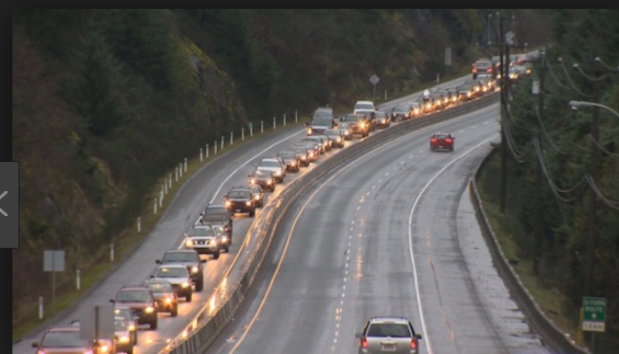
A LESSON FOR PENANG
The great weakness of the local political establishment to Penang’s transport planning and policy needs is that they have insufficient technical backgrounds and competence to solve the mobility problems the people of Penang . This was made clear by the recommendations of the final Halcrow report in 2013 and nothing has been done since to improve the situation.
There are other more effective approaches to dealing with these problems with a strategy of affordable policies, measures and tools capable of giving swift results and a fraction of the costs of the proposed massive infrastructure program, the PTMP.
Let’s have a look at the Canadian report “Rethinking Malahat Solutions: Or, Why Spend a Billion Dollars if a Five-Million Dollar Solution is Better Overall?” at www.vtpi.org/malahat.pdf
This report evaluates various options for reducing traffic problems on the Malahat Highway north of Victoria, British Columbia. It has many parallels with Penang and the PTMP.
The analysis indicates that a combination of bus service improvements, Transportation Demand Management (TDM) strategies and incremental roadway improvements is the most cost effective and beneficial option.
In addition to financial savings this solution provides additional benefits including reduced traveller stress, consumer savings and affordability, improved mobility options for non-drivers, reduced downstream traffic problems, energy conservation and emission reductions.
Current planning tends to undervalue many of these impacts. This report illustrates the benefits of more comprehensive and multimodal planning.
# # #
About the author:
Todd Litman is executive director of the Victoria Transport Policy  Institute, an independent research organization dedicated to developing innovative solutions to transport problems. His work helps to expand the range of impacts and options considered in transportation decision-making, improve evaluation techniques, and make specialized technical concepts accessible to a larger audience. He can be reached at: 1250 Rudlin Street, Victoria, BC, V8V 3R7, Canada. Email: litman@vtpi.org.
Institute, an independent research organization dedicated to developing innovative solutions to transport problems. His work helps to expand the range of impacts and options considered in transportation decision-making, improve evaluation techniques, and make specialized technical concepts accessible to a larger audience. He can be reached at: 1250 Rudlin Street, Victoria, BC, V8V 3R7, Canada. Email: litman@vtpi.org.
Author’s Preface: from on Affordable Transportation
I can report from personal experience that affordable transportation is possible and beneficial, but requires appropriate transport planning. Our demographically average household (two parents, two children, dog and cat) owned just one car, and five years ago when its engine failed we became car-free. We now rely on a combination of walking, cycling, public transport, taxi, delivery services and occasional vehicle rentals. We spend less than $2,000 annually on local transport, at least $5,000 less than peer households. These savings finance our children’s university educations, and using affordable modes provide other benefits including increased personal fitness and better interaction with neighbors.
These savings and benefits are possible because we live in a compact community that has relatively good walking and cycling conditions, good public transit and taxi services, and local stores that offer delivery services. Conventional transport planning overlooks these benefits. Conventional planning tends to favor faster but less affordable transport modes, such as automobiles, over slower but more affordable modes such as walking, cycling and public transit. More comprehensive and multi-modal planning can allow other households to share the benefits we enjoy
# # #
About the World Streets Climate Action Plan coordinator:
Eric Britton
13, rue Pasteur. Courbevoie 92400 France
Bio: Founding editor of World Streets (1988), Eric Britton is an American political scientist, teacher, occasional consultant, and sustainability activist who has observed, learned, taught and worked on missions and advisory assignments on all continents. In the autumn of 2019, he committed his remaining life work to the challenges of aggressively countering climate change and specifically greenhouse gas emissions emanating from the mobility sector. He is not worried about running out of work. Further background and updates: @ericbritton | http://bit.ly/2Ti8LsX | #fekbritton | https://twitter.com/ericbritton | and | https://www.linkedin.com/in/ericbritton/ Contact: climate@newmobility.org) | +336 508 80787 (Also WhatApp) | Skype: newmobility.)
